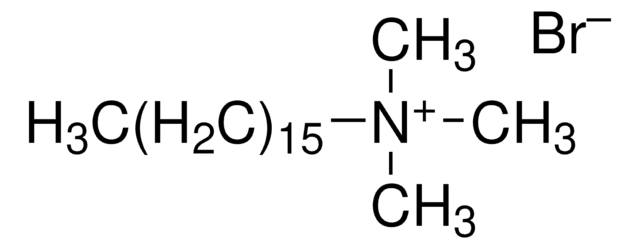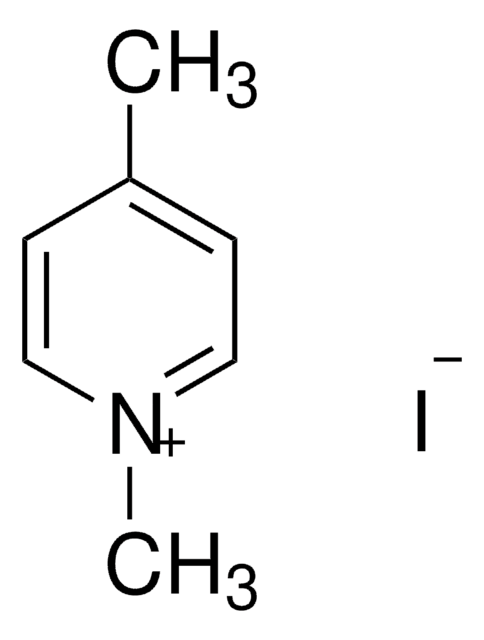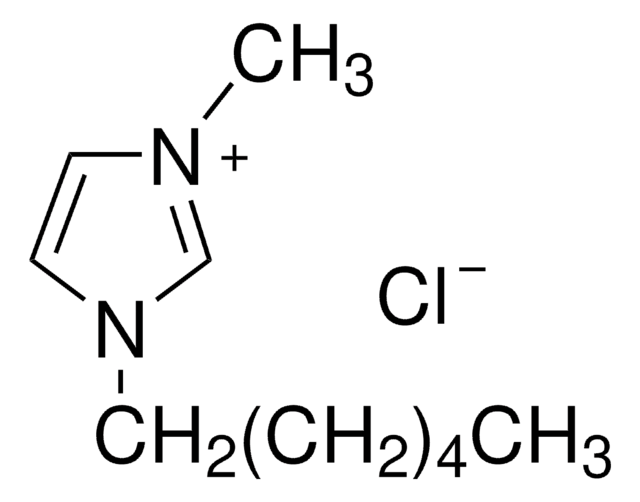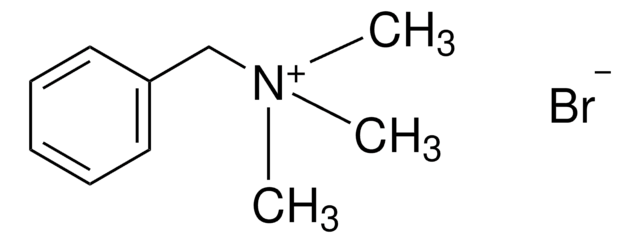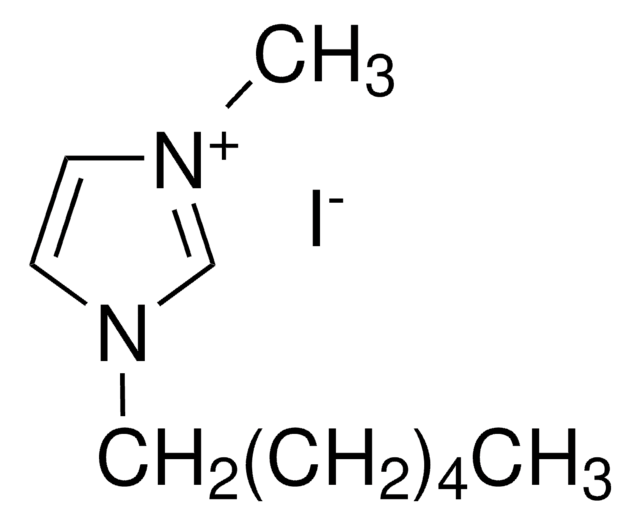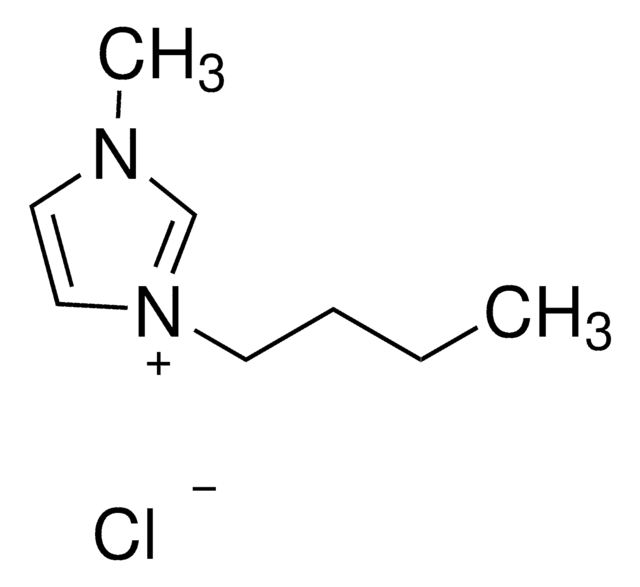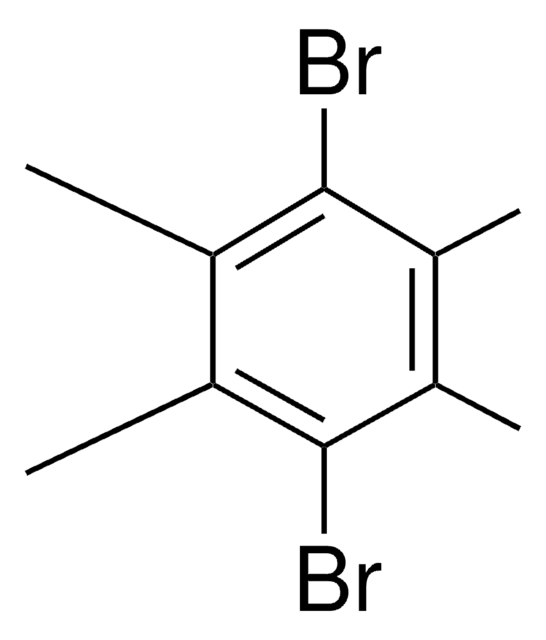Alle Fotos(1)
Wichtige Dokumente
912069
Morpholinium bromide
Synonym(e):
MORPHB, Morpholine hydrobromide (8CI,9CI), Morpholine monohydrobromide, Morpholinium bromide
Anmeldenzur Ansicht organisationsspezifischer und vertraglich vereinbarter Preise
Alle Fotos(1)
About This Item
Empirische Formel (Hill-System):
C4H10BrNO
CAS-Nummer:
Molekulargewicht:
168.03
MDL-Nummer:
UNSPSC-Code:
12352101
NACRES:
NA.23
Empfohlene Produkte
Beschreibung
Identity by (1H NMR)
Qualitätsniveau
Form
powder
Farbe
white
SMILES String
[Br-].[N+H2]1CCOCC1
InChI
1S/C4H9NO.BrH/c1-3-6-4-2-5-1;/h5H,1-4H2;1H
InChIKey
BVJOXYJFOYNQRB-UHFFFAOYSA-N
Anwendung
Organohalide based perovskites have emerged as an important class of material for solar cell applications. The variations/substitution in organohalide cations and anions is employed for the optimization of the band gap, carrier diffusion length, and power conversion efficiency of perovskites based solar cells.
Lagerung und Haltbarkeit
Store in dark at 20 °C
Rechtliche Hinweise
Product of Greatcell Solar®
Greatcell Solar is a registered trademark of Greatcell Solar
Lagerklassenschlüssel
11 - Combustible Solids
WGK
WGK 3
Hier finden Sie alle aktuellen Versionen:
Analysenzertifikate (COA)
Lot/Batch Number
Leider sind derzeit keine COAs für dieses Produkt online verfügbar.
Wenn Sie Hilfe benötigen, wenden Sie sich bitte an Kundensupport
Besitzen Sie dieses Produkt bereits?
In der Dokumentenbibliothek finden Sie die Dokumentation zu den Produkten, die Sie kürzlich erworben haben.
Shanshan Zhang et al.
Advanced materials (Deerfield Beach, Fla.), 31(30), e1901090-e1901090 (2019-06-06)
2D Ruddlesden-Popper perovskite (RPP) solar cells have excellent environmental stability. However, the power conversion efficiency (PCE) of RPP cells remains inferior to 3D perovskite-based cells. Herein, 2D (CH3 (CH2 )3 NH3 )2 (CH3 NH3 )n-1 Pbn I3n+1 perovskite cells with
Lingling Mao et al.
Journal of the American Chemical Society, 139(14), 5210-5215 (2017-03-18)
Hybrid inorganic-organic perovskites are developing rapidly as high performance semiconductors. Recently, two-dimensional (2D) perovskites were found to have white-light, broadband emission in the visible range that was attributed mainly to the role of self-trapped excitons (STEs). Here, we describe three
Eran Edri et al.
The journal of physical chemistry letters, 4(6), 897-902 (2013-03-21)
Mesoscopic solar cells, based on solution-processed organic-inorganic perovskite absorbers, are a promising avenue for converting solar to electrical energy. We used solution-processed organic-inorganic lead halide perovskite absorbers, in conjunction with organic hole conductors, to form high voltage solar cells. There
Unser Team von Wissenschaftlern verfügt über Erfahrung in allen Forschungsbereichen einschließlich Life Science, Materialwissenschaften, chemischer Synthese, Chromatographie, Analytik und vielen mehr..
Setzen Sie sich mit dem technischen Dienst in Verbindung.